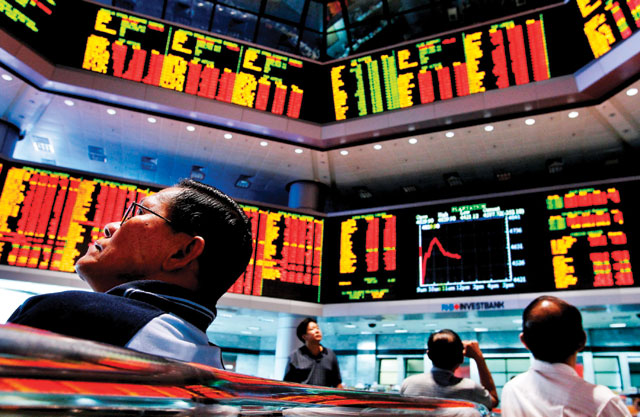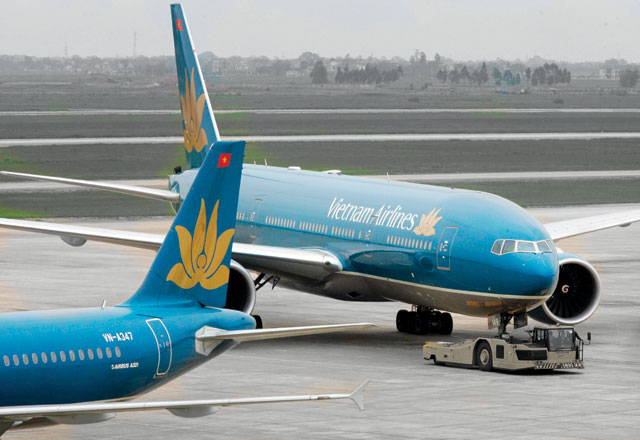While political uncertainties weigh on companies’ plans to go public,
Asean’s potential for new stock market listings remains enormous
By Kevin Ponniah
Weeks after Facebook went public in May 2012 and flopped, Malaysian palm oil planter Felda Global Ventures came to market on the other side of the world, in Kuala Lumpur. Raising $3.1 billion it was, at that point, the second largest initial public offering (IPO) of the year. Investors with an eye on the Asean region rejoiced.
A month later, Asian hospital giant IHH Healthcare listed in Malaysia and Singapore and raised $2.1 billion. Another billion-dollar deal would follow in the form of cable TV operator Astro Malaysia before the year was out.

It was, to put it mildly, a bumper year for Malaysia, which surged to become the world’s fourth-largest IPO trading hub that year. Southeast Asia – led by Malaysia – was suddenly looking like a bright spot for IPOs amid a volatile global environment for public offerings.
The regional pipeline remained strong and in 2013, Singapore and Thailand saw at least two billion-dollar deals each, with Malaysia having an inevitably slower but nonetheless strong year and Indonesia keeping up the pace.
Fuelled by an emerging middle-class consumer market, buoyant growth prospects and no lack of strong domestic firms with capital raising needs, the Asean region should be expected to continue this bullish path.
But while Asia-Pacific, powered by China, led the global IPO market in the first quarter of 2014, Asean member states now look to be lagging behind, analysts say, with political uncertainties the key cause.
“Over the next six to nine months, there are a few big IPOs in the pipeline, but I don’t think they will materialise because the market is not very good, first of all, but there are also external factors, such as political instability,” said Danny Leung, who focuses on emerging capital markets in Asia-Pacific for DealReporter, an investment intelligence firm.
“For 2014, all the [region’s] countries have made the slowest start in three years. Since market conditions do not favour, it is not likely we will see any mega deals coming out towards the end of the year.”
Elections in Indonesia and Thailand’s ongoing political upheavals – which recently evolved into a full-blown military coup – have dampened the market prospects of the bloc’s two biggest economies.
Last year, firms listing on the Thai stock exchange raised $5 billion from 41 IPOs, higher even than Singapore, the regional heavyweight and most developed market, which raised $4.8 billion from 25 IPOs, according to data from PricewaterhouseCoopers (PwC). But to the end of May this year, according to data from the Thai stock exchange, newly listed companies on the Thai bourse had raised just $700 million. The economy is also teetering on the brink of recession after growing 2.9% last year.
Still, Max Loh, Asean and Singapore managing partner at Ernst & Young, said that despite ongoing geopolitical tensions affecting the markets, including disputes between China and several Asean nations in the South China Sea, his outlook is “one of cautious optimism”.
“At the end of the day […] the IPO market, barring an economic bust-up, is always going to be strong because we have many entrepreneurs in our market and there are still a lot more businesses that are growing and will have to tap the capital markets in Asean,” he said.
While an accelerated tightening of monetary policy in the US could further dampen regional IPOs if money flows out of the region, economic fundamentals in the region are good, Loh added.
“The fact that we are moving into the [Asean Economic Community] in 2015, creating a major broad common market is something that can only be good for the economy.”
Indonesia held legislative elections on April 9 and is due to hold presidential elections on July 9. According to Ernst & Young, Asean’s largest economy was number six in the world for IPOs by deal volume for the first quarter this year, with seven listings.

Loh says this is likely due to companies pushing through offerings ahead of the elections, following which, analysts expect the Jakarta exchange to become active again.
However, Thailand remains a question mark. “In Thailand we fail to see a timeline […] because of this political unrest, because we do not know when it will end,” said Tham Tuck Seng, head of capital markets at PwC Singapore. Malaysia, by contrast, is expected to perform better this year, after dropping by more than 50% last year in terms of funds raised, he added.
“2013 was a relatively quiet year in Malaysia because some of the big-size IPOs were under the preparation stage. So we think the 2014 IPO market in Malaysia will outperform the 2013 market. There are more multibillion-dollar IPOs coming in 2014.”
Singapore will always have “a certain bright spark” in the Asean region, Tuck Seng said. “I think Singapore still has a niche in the IPO market in the region. Firstly, whoever wants to come to issue, to tap on Asian investors and the fund market, Singapore is the place because the SGX has positioned itself as the market of Asia,” he said.
Singapore also stands alone as the sole Asean market where foreign companies choose to list and will continue to battle with Hong Kong to draw lucrative foreign deals.
Looking beyond the ‘big four’ towards Southeast Asia’s emerging markets, the potential for listings mainly lies with state-owned enterprises that want to raise funds, analysts say.
But offerings in these frontier markets are largely failing to take off. State-owned enterprises looking to raise capital in Vietnam are simply rushing to list without adequate preparation, leading to poor showings when they go to market.
According to Bloomberg, the Vietnamese government raised just 35% of the amount of capital it was targeting through 24 IPOs in the first four months of 2014. National carrier Vietnam Airlines Corp. will seek to reverse that trend later this year.
Cambodia’s fledgling stock exchange has recently seen its first private company hold an IPO. In June, Taiwanese-owned garment manufacturer Grand Twins International joined the state-owned Phnom Penh Water Supply Authority on the CSX, which launched in 2012.
In the region’s last frontier market of Myanmar, the Yangon Stock Exchange is to be established in 2015 by the Tokyo Stock Exchange and Daiwa Securities Group, though significant hurdles are yet to be overcome. Laos’ Securities Exchange launched in 2011 and so far has only three listed companies.
“What [these countries] need to do is improve governance standards so that investors know that when they invest they can sleep well at night,” said PwC’s Tuck Seng.
It appears there is no shortage of firms looking to go public across Asean. Still, with investor confidence down and political uncertainty high, the question for many will be one of timing.
“There is still a pipeline of companies looking to tap capital markets, but is it the right time?” Ernst & Young’s Loh questioned. “Would people defer because of concerns over everything that is happening across the markets? That is the big question mark.”

